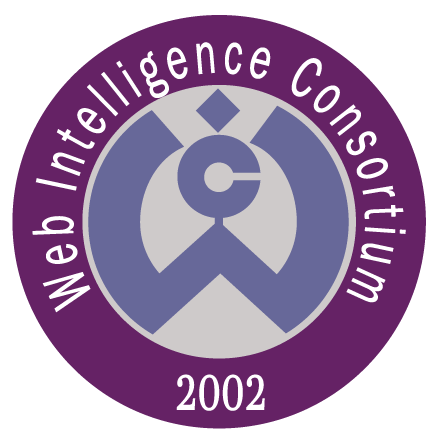Updates
|
The times mentioned in the programme are in EST, i.e., GMT-4 Click to download the presentation template Click to join the Online Session via Zoom |
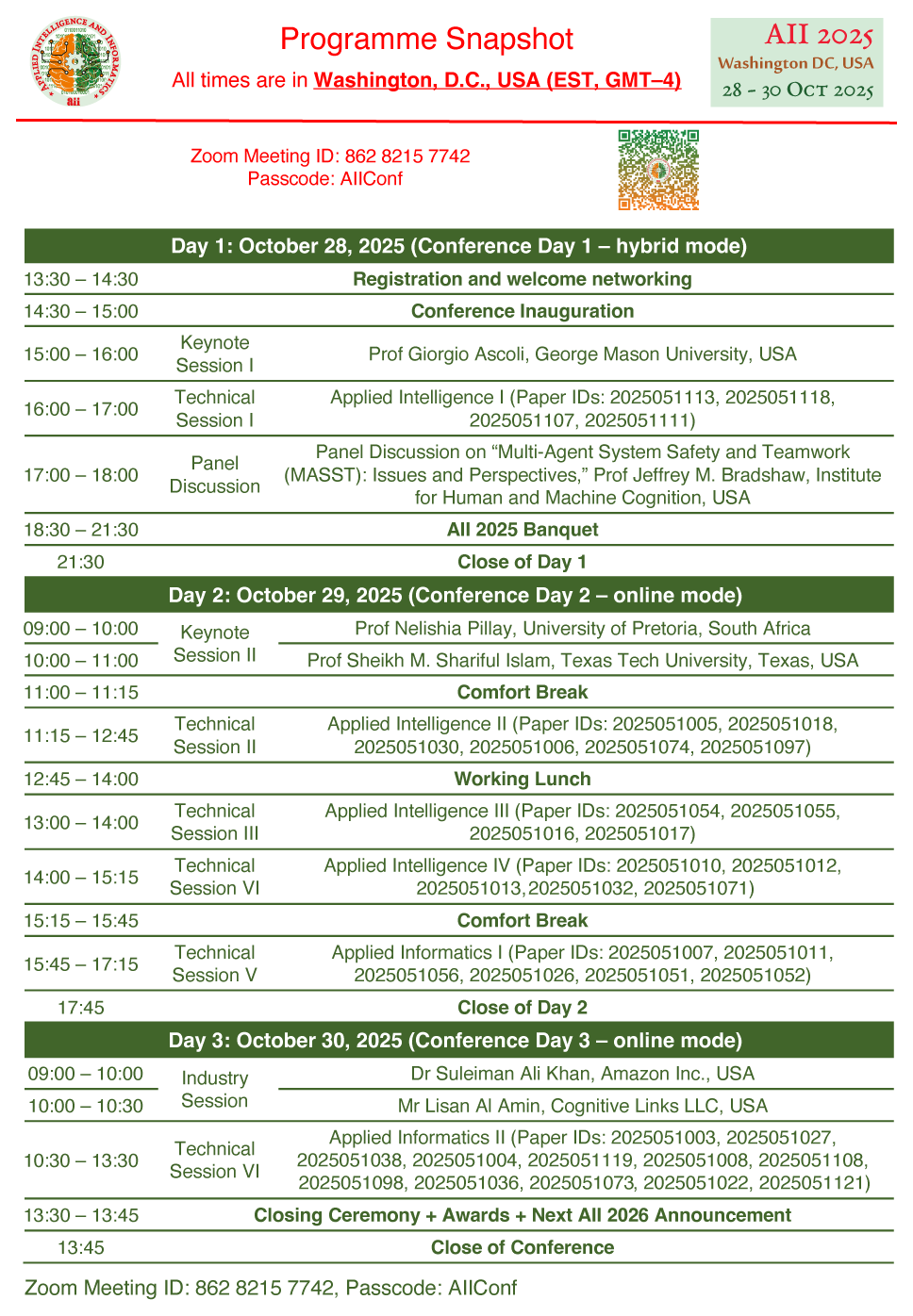
|
|
Camera-Ready Paper Submission
* Deadline for Camera Ready Submission is 13 October 2025 * |
|
* Proceedings of AII 2024 Conference * |
About the Applied Intelligence and Informatics (AII) Conference
Intelligence is defined as the ability to perceive or infer information, and to retain it as knowledge to be applied towards adaptive behaviours within an environment or context. It can be the capacity for logic, understanding, self-awareness, learning, emotional knowledge, reasoning, planning, creativity, critical thinking, and problem-solving. Informatics is the study of the structure, behaviour, and interactions of natural and engineered computational systems. It studies the representation, processing, and communication of information in natural and engineered systems. Applying intelligence and informatics in solving most complex problems in science, engineering, real-life manufacturing, defence, management, government, and industrial domains.
The 5th International Conference on Applied Intelligence and Informatics (AII 2025) provides a premier international forum to bring together researchers and practitioners from diverse domains for the sharing of cutting-edge research results obtained through the application of intelligence and/or informatics to solve problems otherwise would not have been possible to solve. AII 2025 also fosters exchange and dissemination of innovative and practical development of methodologies and technologies with real-life applications.
AII 2025 aims to run in a competition format and asks all authors to make their dataset and methodology open access for the community usage. This is to: Foster the Reproducibility of Scientific Results, hence is the theme of the conference.
Keynote Speakers
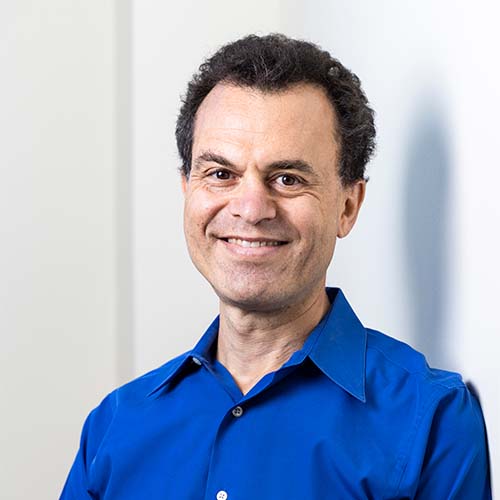
George Masion University, Fairfax, Virginia, USA
Title: Neurons are trees! Should AI reckon with neuroscience?
Abstract: Biological brains are large circuits of neurons directionally interconnected by synapses. In this traditional “neural network” model, spatial-temporal neural activity patterns represent content – memories, decisions, plans, etc. – whereas synaptic plasticity (weight changes) underlie learning. A less appreciated organizational principle of nervous systems is that the input and output lines of nerve cells are branching trees with highly specific geometric features. This physical structure sets precise connectivity relations that translate into direct computational constraints. On the one hand, this explains certain cognitive aspects such as background information gated learning. On the other, it endows brains with the powerful ability to discriminate between causal associations and spurious co- occurrences, enabling one-shot learning. Artificial neural networks such as deep learning can emulate certain elements of such an organization by layered all-to-all connectivity and a majority of quasi-zero weights, but fail to capture other potentially essential aspects. Incorporating these neuroscience principles in next-gen machine learning designs could lead to technological and scientific breakthroughs.
Biography: Dr. Giorgio Ascoli received a Ph.D. in Biochemistry and Neuroscience from the Scuola Normale Superiore of Pisa, Italy, and continued his research at the National Institutes of Health in Bethesda, MD, to investigate protein structure and binding in the nervous system. He moved to George Mason University in 1997, where he is Distinguished University Professor in the Bioengineering Department and Neuroscience Program. He is founder and Director of the Center for Neural Informatics, Structures, & Plasticity, a transdisciplinary research group that includes biologists, computer scientists, and mathematicians. Dr. Ascoli is founding Editor-in-Chief of the journal Neuroinformatics and his 2015 book “Trees of the Brain, Roots of the Mind” was published by MIT Press. He received the 2012 Outstanding Faculty Award of the State Council for Higher Education of Virginia and was elected AIMBE fellow in 2022. Dr. Ascoli won the Beck Presidential Medal for Excellence in Research and Scholarship as well as the NIH/FASEB DataWorks!Challenge ‘Distinguished Achievement Award’ in 2023.

University of Pretoria, Gauteng, South Africa
Title: Advancing Healthcare Using Emerging Trends in Artificial Intelligence
Abstract: Artificial intelligence has made an impact in various facets of healthcare including disease diagnosis and human-centered well-being. Artificial intelligence solutions in these areas include disease predictors, risk predictors, robotic surgery and support for mental health disorders, amongst others. This talk will examine emerging trends in artificial intelligence and their impact on healthcare systems, as well as potential challenges. Trends that will be focused on include artificial intelligence for artificial intelligence (AI4AI), multimodal learning and explainable artificial intelligence (XAI). While artificial intelligence systems have been effective in healthcare, designing these systems are challenging and time-consuming. AI4AI involves using artificial intelligence to design artificial intelligence solutions. Can we get to a point where AI tools can be used by non-experts to create healthcare systems without input from AI experts? Traditionally, healthcare systems are designed based on one modality of data, e.g., text or image. The talk will look at multimodal learning, which involves learning from more than one data modality, and the impact this has had on healthcare systems. While there have been advances in XAI for healthcare systems, are the explanations provide by XAI sufficient? The talk will conclude by highlighting future research directions in this area.
Biography: Nelishia Pillay is a Professor at the University of Pretoria, South Africa. She holds the Multichoice Joint-Chair in Machine Learning and SARChI Chair in Artificial Intelligence for Sustainable Development. Her research areas include hyper-heuristics, automated design of machine learning and search techniques, transfer learning, combinatorial optimization, genetic programming, genetic algorithms and machine learning and optimization for sustainable development. These are the focus areas of the NICOG (Nature-Inspired Computing Optimization) research group which she has established.
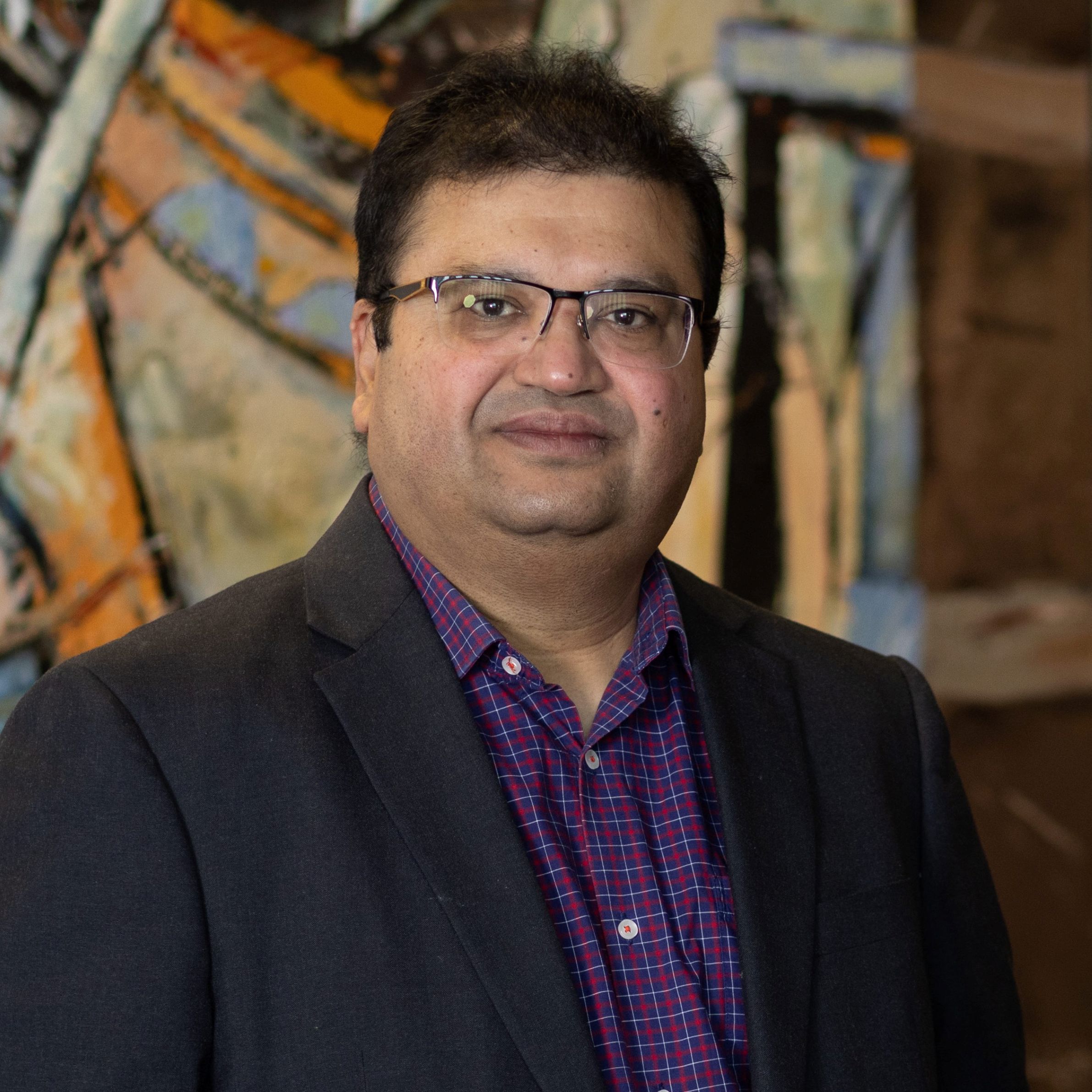
Texas Tech University, Lubbock, Texas, USA
Title: From Data to Decisions: Evidence-Based Integration of Wearable Technologies and Artificial Intelligence for the Future of Health
Abstract: The next frontier in healthcare innovation lies at the intersection of human biology,
digital sensing, and intelligent computation. The fusion of wearable technologies and Artificial Intelligence (AI)
marks a fundamental shift in healthcare from episodic, clinic-centered care toward continuous, personalized,
and predictive health management. This keynote will provide an evidence-based overview of how AI-driven analysis
of wearable sensor data is enabling early detection of physiological anomalies, chronic disease risk assessment,
and behavioral insights that promote long-term wellness. By synthesizing findings from recent large-scale clinical
studies and real-world deployments, the session will present validated guidelines for designing, implementing, and
evaluating AI–wearable systems that are accurate, ethical, and scalable. Key discussion points will include:
(1) Data Quality and Model Reliability: Strategies for managing sensor variability, missing data, and contextual
bias using adaptive algorithms and multimodal data fusion.
(2) Integration Frameworks: Evidence on best practices in cloud–edge architectures, on-device AI inference,
and the use of federated learning for maintaining privacy while supporting collaborative model improvement.
(3) Clinical and Behavioral Validation: Case studies demonstrating measurable improvements in cardiovascular,
metabolic, and mental health outcomes driven by AI-informed interventions.
(4) Ethical and Regulatory Guidelines: Emerging frameworks from regulatory bodies and research consortia
guiding transparency, safety, and equitable AI use in healthcare.
This keynote will provide AI engineers, data scientists, and system integrators with a structured roadmap for
evidence-based innovation, bridging model development with real-world impact. By aligning wearable intelligence
with AI integration principles, the talk emphasizes how the next decade of healthcare can be reshaped around
continuous, ethical, and human-centered intelligence.
Biography: Shariful Islam is a Professor in the Department of Nutrition at Texas Tech University. He is a globally recognized leader in digital health innovation, with over 20 years of experience spanning clinical medicine, public health, and artificial intelligence (AI). His research integrates wearable technologies, electronic health records, and behavioral science to improve cardiovascular and metabolic health outcomes. Dr. Islam has secured over $8.5 million in competitive funding and contributed to global health initiatives including WHO’s mDiabetes and mHypertension programs. He has developed patented AI models for cardiovascular disease prediction, deployed wearable technologies that improved treatment adherence, and led projects that reduced hospital readmissions for patients with heart diseases. His work has been published in The Lancet, BMJ, European Heart Journal, and Diabetes Care, and he is ranked among the top researchers in mHealth, medical AI and digital health. He is also deeply committed to mentoring and teaching, with a strong track record in supervising students and delivering courses in International Nutrition, Nutritional Epidemiology, and AI in Healthcare.

Amazon Inc., Seatle, USA
Title: Collaborative Learning at Scale in Healthcare
Biography: Dr Suleiman Ali Khan is a Principal Researcher at Amazon, where he leads advanced work in GenAI, multimodal large-language models and reasoning-centric machine-learning systems. His research portfolio and impact span Bayesian machine learning, multi-view learning, and the operationalisation of AI at an industrial scale. Prior to Amazon, Dr Khan completed his PhD at Aalto University, where he developed multiview tensor-factorisation methods for computational biology and recommender systems. His current work centres on bridging foundational AI and large-scale deployment: overseeing systems that generate and curate millions of product-catalogue concepts, design retrieval-augmented generation pipelines and optimise customer-facing language-vision models. Passionate about translational research, Dr Khan publishes in top venues, mentors scientists and fosters cross-disciplinary innovation at the interface of AI theory and e-commerce/real-world systems. He leads the Muslims in Machine Learning workshop organisation in leading venues such as NeurIPS, ICML, ICLR, ACL, and AIStats.
Tracks & Areas
The AII 2025 solicits high-quality original research and application papers (both full and short paper submissions).
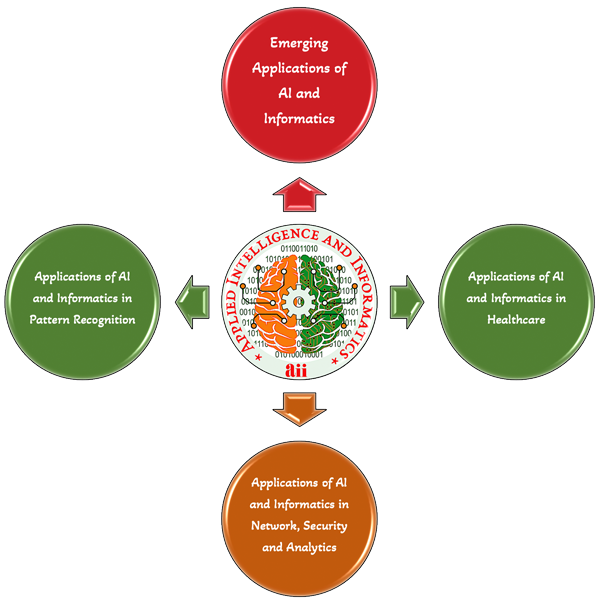
Relevant subject areas include but are not limited to:
- Track 1: Emerging Applications of AI and Informatics
- Track 2: Application of AI and Informatics in Healthcare
- Track 3: Application of AI and Informatics in Pattern Recognition
- Track 4: Application of AI and Informatics in Network, Security, and Analytics
Publications

|
|
Timeline
- Special Session proposal submission: 15th August 2025
- Workshop proposal submission: 15th August 2025
- Tutorial proposal submission: 31st August 2025 (No Further Extension)
- Paper Submission (both Full and Short): 31st August 2025
- Paper Acceptance Notification: 15th September 2025
- Final Paper Submission & Accepted Paper Registration: 13th October 2025
- AII 2025 in Washington, D.C., USA: 28th – 30th October 2025
Special Session, Tutorial & Workshop Proposal
- Proposal Submissions: AII 2025 will be hosting a series of special sessions, tutorials and workshops featuring topics relevant to the intelligence and informatics community on the latest research and industry applications. Special Session/ Tutorial/ Workshop proposals should be submitted by email to info@aii-conf.org and aii.conf.team@gmail.com. Proposal Guidelines: Each proposal should be concise with 1-3 pages and should include 1) special session/tutorial/workshop title; 2) length in hours; 3) names, main contact, and a short bios (150 words) of the organisers; 4) brief description of the scope and timeline; 5) prior history (if any); 6) potential program committee members and invited speakers (if available); 7) Any other relevant information.
- Papers and Presentations: A special session/tutorial/workshop is expected to be completed within 4 hours including breaks. Tutorials include a mix of invited presentations from academic or industrial experts, while special sessions/workshops include regular papers, short papers and invited papers. The paper submissions to workshops/special sessions follow the same format as well as the review process as the AII 2025 conference papers.
- Publications: Accepted workshop and special session full papers will be published at the same AII 2025 proceedings (subject to review process).
Paper Submission
-
Paper Submission: To submit papers, visit the Submission page.
- Full papers: submissions should be between 12 and 15 pages long including figures and references. Additional pages will be charged.
- Short papers: high quality papers between 6 and 11 pages are also welcome and will be accepted as short papers based on their originality, significance of contribution to the field, technical merit, and presentation quality.
- Note that the number of accepted short papers can only be at most 10% of the total accepted papers. Hence we encourage full paper submission.
- Paper submission link will be made available soon.
- Paper Format: All paper submissions MUST follow Springer LNCS Proceedings format.
- Microsoft Word template download from here: https://aii-conf.org/download/Author-template-Springer-LNCS.dotm
- For Latex template use this overleaf link: https://www.overleaf.com/latex/templates/springer-lecture-notes-in-computer-science/kzwwpvhwnvfj
- Questions and Suggestions: Concerning paper submissions, conference registrations, suggestions for the program, and other inquires, please feel free to contact AII 2025 chairs.
Sponsors
In partnership with:
 |
 |



